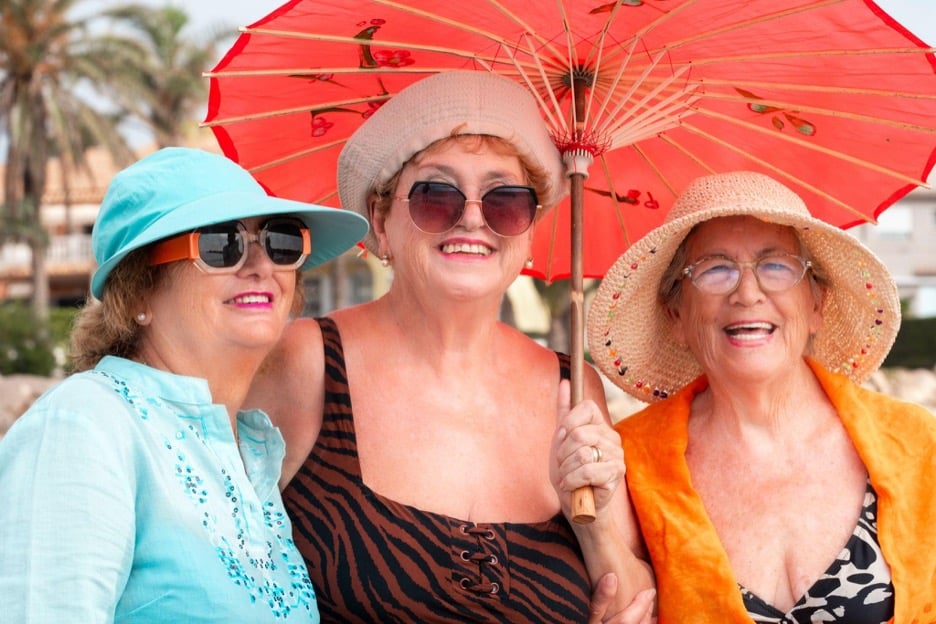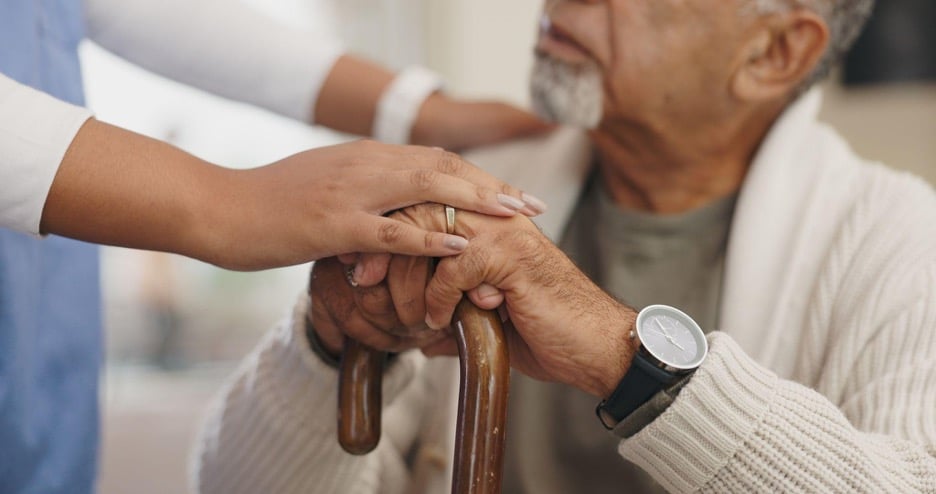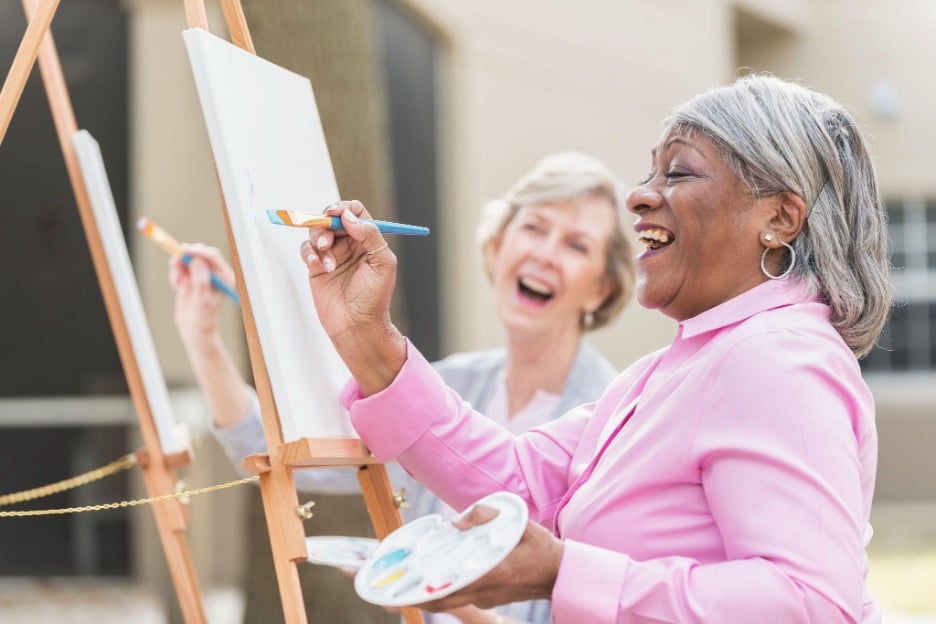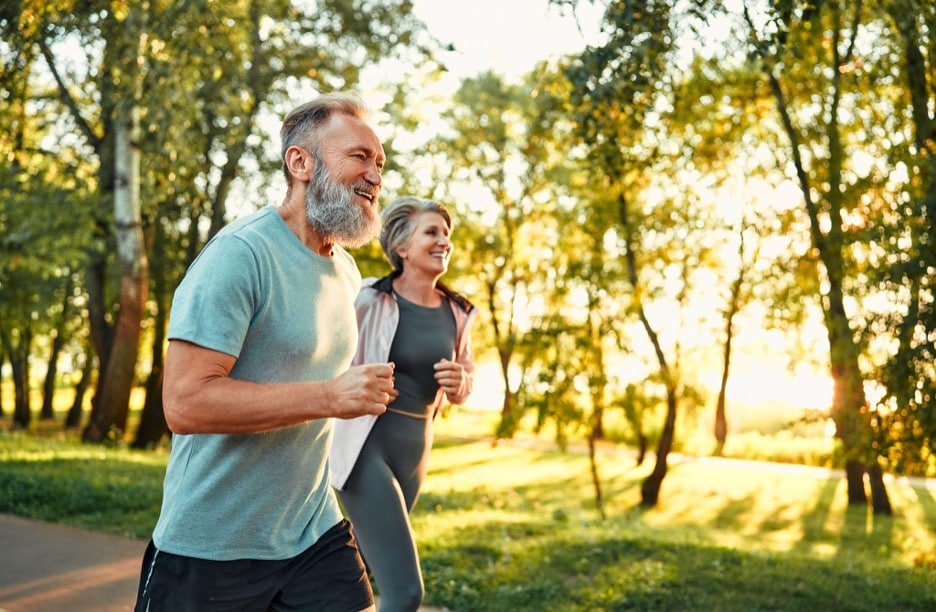The Dangers of Hot Weather and Heatstroke in the Elderly

How To Stay Safe, Cool, and Healthy This Summer
As temperatures rise, so do the risks – especially for older adults. Every summer, thousands of seniors across the country face heat-related illnesses that can quickly escalate into dangerous, even life-threatening situations. In fact, according to the CDC, people aged 65 and older are at the highest risk for heat-related health complications due to a combination of age-related physiological changes, underlying medical conditions, and environmental factors.
At Cascade Living Group, we believe awareness, prevention, and timely responses can make all the difference when it comes to keeping seniors safe during the hottest months. Whether you’re a caregiver, loved one or a senior yourself, understanding the signs of heat stress and knowing how to act can help protect your health or the health of someone you love.
Why Seniors Are More Vulnerable to Heat
Older adults are more vulnerable to high temperatures for several reasons. As we age, our ability to regulate body temperature diminishes. This means seniors often sweat less, making it harder for their bodies to cool down efficiently. Chronic health conditions like heart disease, diabetes or kidney issues can further complicate the body’s natural heat response, putting seniors at even greater risk.
Additionally, many medications commonly prescribed to older adults – such as diuretics, beta-blockers, and sedatives – can interfere with hydration or hinder the body’s ability to regulate temperature. Compounding this is a decreased sensation of thirst that comes with age, which can lead to unintentional dehydration.
For some seniors, access to fans or air conditioning may be limited, especially for those living alone or on fixed incomes. And finally, limited mobility or cognitive decline can make it harder to recognize the warning signs of heat-related illness or take action when needed.
Common Heat-Related Illnesses and Symptoms
Heat Cramps
Painful muscle spasms, usually in the legs, arms or abdomen, often occur after physical activity in the heat. These cramps are typically accompanied by heavy sweating and a normal body temperature.
Heat Syncope (Fainting)
This condition refers to sudden dizziness or fainting, especially after prolonged standing or getting up too quickly. It’s a common heat response in older adults who may already be prone to blood pressure fluctuations.
Heat Edema
Swelling in the feet, ankles or hands is caused by blood vessels dilating in response to heat. While not always dangerous, it can be uncomfortable and a sign that the body is struggling to cope.
Heat Rash
This is an itchy, red rash that develops in areas where sweat gets trapped against the skin. It often appears in skin folds or beneath clothing and is a sign that the body is overheating.
Heat Exhaustion
A warning stage before heatstroke. For many, including the elderly, heat exhaustion symptoms include:
- Heavy sweating
- Weakness or fatigue
- Nausea or vomiting
- Rapid, shallow breathing
- Cool, clammy skin
- Fainting
If left untreated, heat exhaustion can quickly escalate into heatstroke.
Heatstroke
This is the most serious heat-related illness and requires immediate medical attention. When body temperature rises above 103–104°F, the person may exhibit red, hot, dry (or damp) skin, a strong or rapid pulse, confusion, or even unconsciousness. Without prompt treatment, heatstroke in seniors can lead to severe organ damage or death.

What To Do if You Suspect Heat Stress
If you suspect someone is suffering from heat exhaustion or heatstroke:
- Move them to a shaded or air-conditioned area.
- Apply cool compresses, or help them take a cool shower.
- Offer small sips of water if they are conscious and not vomiting.
- Use a fan or spray bottle to help cool their skin.
- Monitor their temperature and symptoms closely.
- Seek immediate medical attention if symptoms persist or worsen.
Call 911 right away if the person shows signs of heatstroke, including confusion, unconsciousness or a body temperature over 103°F.
When To Call a Doctor or Emergency Services
Recognizing the early signs of heat stress is critical. Look out for symptoms such as dizziness, nausea, excessive fatigue, or noticeable behavioral changes like confusion or irritability. If someone stops sweating despite high temperatures or experiences muscle cramps, swelling or fainting, take immediate action. These signs may indicate that the body is beginning to shut down in response to the heat.
Medical intervention is essential if any of the following occur:
- A high fever (above 103°F) that doesn’t go down
- Persistent vomiting or inability to stay hydrated
- Confusion, fainting or trouble walking
- No improvement after 30 minutes of cooling efforts
Summer Safety Tips for Seniors and Heat
To stay safe during the summer months, hydration is key. Seniors should drink plenty of water throughout the day – even if they don’t feel thirsty. Avoid alcohol and caffeine, both of which can contribute to dehydration.
Diet matters too. Opt for hydrating foods like watermelon, cucumbers or oranges.
It’s also important to dress appropriately: light-colored, loose-fitting clothing made from breathable materials is ideal. Seniors should try to remain indoors between 10 a.m. and 4 p.m., when the sun is at its strongest.
Additional prevention tips:
- Use fans or air conditioning, or visit public cooling centers, such as libraries or shopping malls.
- Take cool showers or baths to lower the body temperature.
- Keep blinds or curtains closed during peak sunlight hours.
- Eat light meals, and avoid excessive physical exertion.
- Apply broad-spectrum sunscreen (SPF 15+), and wear a wide-brimmed hat and sunglasses when outdoors.
What Caregivers and Neighbors Can Do
During extreme heat events, it’s vital to look out for one another. Caregivers, family members, and neighbors can play a key role in protecting seniors.
Check in on elderly relatives or neighbors at least twice daily during heat waves. Make sure they have access to a cool environment, and encourage them to drink water throughout the day, even if they say they’re not thirsty. Be alert to signs of heat stress and offer help getting to air-conditioned spaces or cooling centers if needed.
For more on creating a proactive plan, visit our page on planning for senior care.

Summer Should Be a Season of Joy – Not Danger
With the right precautions, support, and community awareness, we can help older adults enjoy the sunny season safely and confidently.
If you’re exploring long-term solutions, such as assisted living that prioritizes safety and comfort year-round, our team is here to help. Learn more about the benefits of assisted living or find the right plan.


